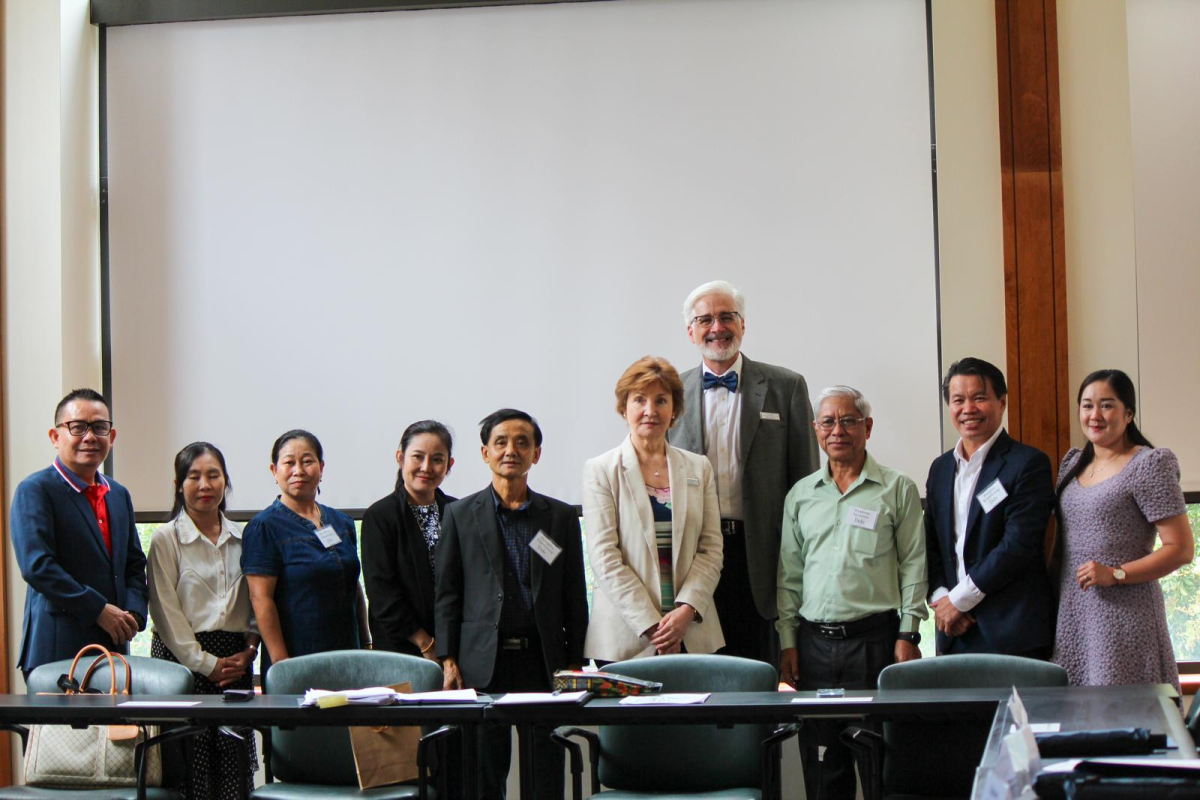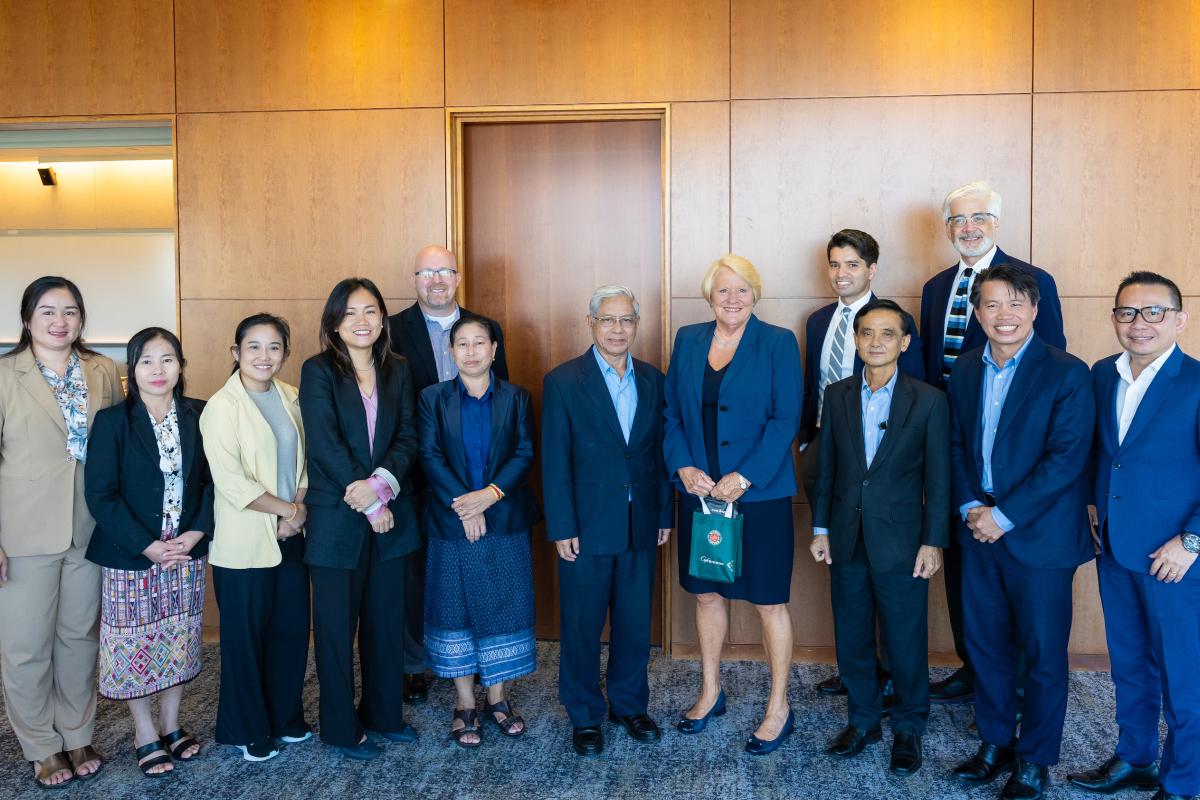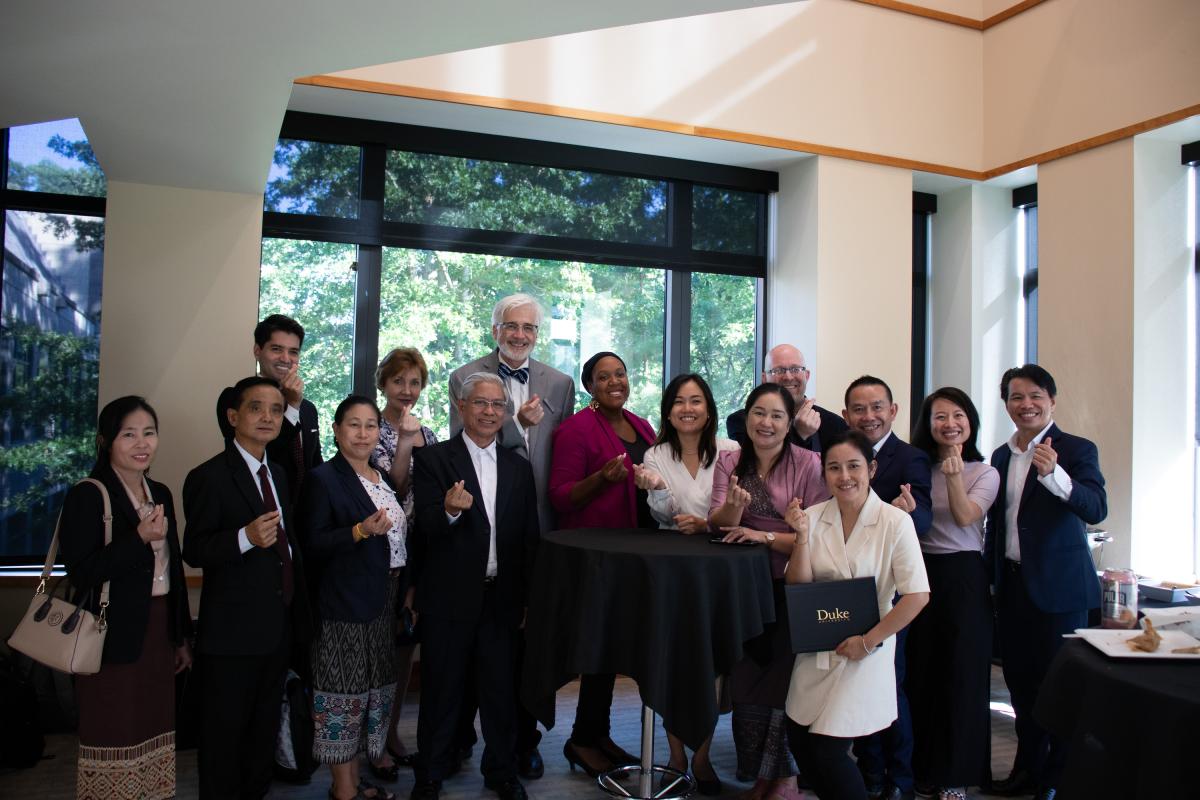Duke develops learning exchange partnership with Lao universities
The Duke Center for International Development, with support from USAID and RTI International, facilitated a study tour on the management and innovation of higher education for academic administrators from the Lao People's Democratic Republic.
The Duke Center for International Development (DCID) hosted a delegation of higher education administrators from the Lao People’s Democratic Republic (PDR) for a week-long study tour to learn about the U.S. university system from Duke University, the University of North Carolina (UNC) at Chapel Hill, North Carolina State University, North Carolina Central University and RTI International.
The delegation, chaired by Saykhong Saynasine, director general of higher education, Department of the Ministry of Education, included academic leaders from Lao PDR’s four main universities: National University of Laos (NUOL), Champasack University (CU), Souphanouvong University (SU) and Savannakhet University (SKU).
During their time in North Carolina, the delegates gained insights into the U.S. universities’ learning approaches and modalities, public-private partnerships, community and student engagement, research quality, and co-curricular programming.
The study tour was part of USAID’s Study and Modeling of Management Capacity and System Strengthening Project (SMCS) to improve the education quality of the Lao PDR public university system. Project co-directors Natalia Mirovitskaia and Corinne Krupp, both professors of the practice, with the assistance of Lisa Moreau, instructor, and Matthew Bunyi, director of executive education and strategic initiatives, collaborated with RTI International to help NUOL, CU, SU and SKU assess their performances across several domains and identify areas for growth. The team also scoped avenues of potential technical assistance and learning exchange activities between Duke and the Lao institutions.
Study Tour Highlights
The study tour focused on academic excellence, student engagement, research quality and utilization, and service learning, as well as on developing university-to-university and person-to-person connections and relationships.
- At Duke University, the delegates met with various university leaders to discuss practices and challenges in strategic planning, governance and accountability, academic operations, financial sustainability, learning innovation and knowledge transfer, and many other areas. Toddi Steelman, vice president and vice provost for climate and sustainability, met with the group to discuss the university’s commitment to advancing education and research around the climate crisis.
- At UNC-Chapel Hill, the delegation was greeted by Ambassador Barbara Stephenson, vice provost for global affairs and chief global officer. In meetings with various UNC leaders, delegates learned about the North Carolina public university system, UNC global education efforts, in particular its Southeast Asia programs, as well as the university’s student engagement programming and co-curricular opportunities.
- At NC State University, the group learned how the university brings together North Carolina’s entrepreneurial community, the university’s alumni network and innovative private companies.
- At RTI International, the delegation explored how technology can be leveraged to advance equitable, high-quality education. RTI’s education technology experts shared how the company combines substantive knowledge of education policy and research with expertise in data use, statistics, design theory and software development to create useful tools to inform policy and improve practice.
During the concluding session, delegates shared they would like their institutions to implement several practices identified during the tour. In the exit surveys, it was noted this visit was “a very crucial experience” that challenged their “capacity and knowledge” and inspired many ideas for further cooperation.
Growing the partnership
Following the study tour, the Duke team designed and organized three interactive webinars for Lao higher education academics and administrators. Select Lao faculty were also provided access to Duke online library resources and trainings on research methods.
Additional potential collaborative initiatives have been discussed and are dependent on funding.
“At this moment, the United States has the best opportunity in decades to reset its relations with Laos, helping the country to advance sustainable and meaningful development,” Mirovitskaia shared. “Cooperation between higher education institutions is one of the most promising avenues to achieve such goal.”



